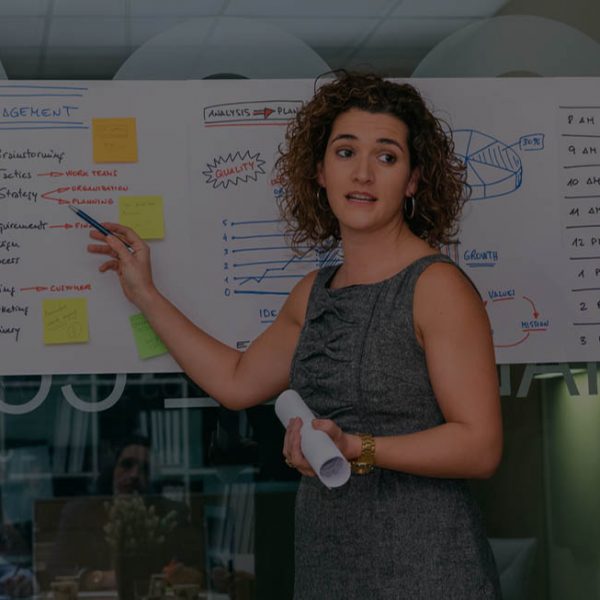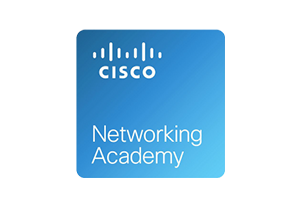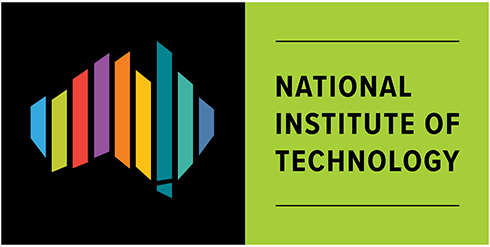
BSB60720
Advanced Diploma of Program Management
Advanced Diploma of Program Management at the National Institute of Technology is designed to equip you with the skills and knowledge required for diverse program management-related job roles in various industry sectors. The course covers the essential skills and knowledge required for managing or directing a program to achieve organisational objectives.
You will be provided with an opportunity to work on simulated program management scenarios to demonstrate the knowledge and skills that you will gain via this course.
- Duration: 52 Weeks including breaks
- Delivery Mode: Face-to-face (classroom based)
- Location: Perth City
- Course CRICOS Code: 113301C
Course Package
Available
Package Project Management with Program Management for double qualification and double career outcomes.
BSB50820 – Diploma of Project Management
Course CRICOS Code: 113302B
BSB60720 – Advanced Diploma of Program Management
Course CRICOS Code: 113301C
BSB60720 – Advanced Diploma of Program Management
Course CRICOS Code: 113301C
BSB50820 – Diploma of Project Management
Course CRICOS Code: 113302B
Course Package
Available
Package Project Management with Program Management for double qualification and double career outcomes.
Package Duration
The duration of both courses packaged together is 104 weeks (2 years).
Package Career Outcome
• Program Manager
• Program Leader
Package Visa Outcome
Students are eligible for Temporary Graduate visa (subclass 485) Graduate Work stream.
Course Overview
Advanced Diploma of Program Management at the National Institute of Technology is designed to equip you with the skills and knowledge required for diverse program management-related job roles in various industry sectors. The course covers the essential skills and knowledge required for managing or directing a program to achieve organisational objectives.
A program is defined as a set of interrelated projects, each of which has a project manager.
In this course, you will learn:
- Initiatives and judgement to direct, plan, and lead a range of program functions
- Accountability for personal and team outcomes within broad parameters.
- Cognitive and communication skills to identify, analyse and synthesise information from a variety of sources and transfer their knowledge to others,
- Creative or conceptual skills to express ideas and perspectives or respond to complex problems.
Career Prospects
Job roles and titles vary across different industry sectors. Possible job titles relevant to this qualification include:
- Program Manager
- Program Leader
- Program Administrator
There is a strong demand for Program Management professionals in Australia. Organisations across Australia are reporting major skills gaps in the program management and administration areas. Program Management roles are typically advertised between $115k and $135k*.
* https://www.seek.com.au/career-advice/role/programme-manager/salary, a leading employment search platform in Australia. Accessed on 24 July 2023.
Entry Requirements
- Age:
- You must be 16 years or above at the time of application to study at NIT.
- Academic
- To check the academic entry requirements, refer to the Academic Entry Requirements web page.
- English Language Proficiency
- Overall IELTS band score of 5.5, with no band score less than 5.0; or
- An equivalent score in another English Language Proficiency Test acceptable by the National Institute of Technology; or
- An alternative English language proficiency evidence that is acceptable by the National Institute of Technology.
Click here to check the English language proficiency tests and alternative English language proficiency evidence acceptable by the National Institute of Technology.
Course Structure
To complete this course, a total of 12 units must be completed.
- BSBPMG630 Enable program execution
- BSBPMG634 Facilitate stakeholder engagement
- BSBPMG635 Implement program governance
- BSBPMG636 Manage benefits
- BSBPMG632 Manage program risk
- BSBOPS601 Develop and implement business plans
- BSBFIN601 Manage organisational finances
- BSBTEC601 Review organisational digital strategy
- BSBPEF502 Develop and use emotional intelligence
- BSBSUS601 Lead corporate social responsibility
- BSBPMG633 Provide leadership for the program
BSBCRT611 Apply critical thinking for complex problem solving
Notes: Course structure, units and content are subject to change during the delivery period due to a change in legislative requirements or due to NIT’s course review process.
The training and assessment of the units in this course are delivered holistically over the length of the full course. You will achieve competencies in each unit only when you have demonstrated satisfactory knowledge and skills in all the required assessment criteria linked to that unit.
Fees & Intake Dates
An International Student is a person who:
- is not a Citizen or a Permanent Resident of Australia; and
- either holds a valid Australian student visa or intends to apply for an Australian student visa before the commencement of the course.
All international students who intend to study in Australia on a student visa require a Confirmation of Enrolment (CoE). The CoE (Confirmation of Enrolment) is an official document generated via PRISMS (Provider Registration and International Student Management System) that provides important information about your enrolment status. This document is required to be submitted to the Department of Home Affairs before applying for a student visa.
You must have a valid CoE at all times while you are studying on a student visa.
A Domestic Student is a person who is:
- a Citizen of Australia; or
- a Permanent Resident of Australia; or
- a Citizen of New Zealand; or
- a holder of an Australian Visa (other than a Student Visa) that allows them to study in Australia with no limitations on study.
Domestic students do not require a CoE (generated via PRISMS) as they do not need to apply for a student visa. They are provided with an enrolment confirmation from NIT via email, once their enrolment is finalised. Note: If you are a holder of an Australian visa, other than a student visa, you must have sufficient remaining duration on your visa to complete your studies at the National Institute of Technology from the date of your course commencement. Check course durations on the relevant course pages on the NIT’s website.
 Important Information
Important Information
- All students studying at NIT are required to bring their laptops that meets the minimum system requirements specified in NIT’s Bring Your Own Device (BYOD) policy.
- Students also must have access to a high-speed internet connection – broadband wired or wireless (5G/4G/LTE) – Minimum bandwidth requirement is 5/3 Mbps (download/upload speed).
- Students are also required to bring their own notebooks, stationery and USB storage media. NIT may lend laptops to students for on-campus use only based on a first-come-first-served basis.
This course involves a number of learning and assessment methods. Typically, the learning methods may include Presentations and discussions, Demonstrations, Individual and group activities, Skills practice, Role plays, Case studies, Simulated scenarios, and Research activities.
Assessment methods generally include Practical Observation of Tasks, Written or Oral Questioning, Case Studies, Role Plays, Reports, Research Projects, Presentations, etc.
Recognition of Prior Learning (RPL)
If you think that you have already gained the skills and experience for a unit or entire qualification, you can apply for RPL to get recognised as competent for parts or a whole nationally recognised qualification. Not everyone will get credited for their skills and knowledge. Successful applicants will need to demonstrate a reasonable amount of experience in the area their course covers. Contact us to know more about our RPL process.
Before making an application to study at National Institute of Technology, you must read the information provided for International Students in NIT Student Handbook & Policies webpage.





Testimonials
What our students say
about NIT
My experience at NIT has been great. The trainers are always helpful and spot-on when responding to my questions in class, which I ask a lot since I really want to learn networking skills. As a student, I was working as an uber eats delivery driver and in between deliveries,.

I am absolutely satisfied with my choice to join NIT Australia with the Diploma of Information Technology Networking and the upcoming Advanced Diploma of Telecommunications Network Engineering. I believe this is a great start for my career in Australia. Regarding the course structure, it is not only focused on theories but.

Since I started my study program at NIT, I have been developing very important and exciting new skills, such as working with specific equipment and the physical infrastructure of internet connections. Most importantly, all trainers are very knowledgeable and talented, which has been making my experience incredible and unique. I can’t wait to.

I was studying at a different college which I didn’t enjoy and I was scared I may have the same experience at NIT, but it was the opposite when I came here which I am happy about. I never thought I would understand programming but gradually I am gaining more.

I am doing the Advanced Diploma of Telecommunications Network Engineering course to learn more about fibre technologies. Dense Wavelength Division Multiplexing (DWDM) technologies are going to be the future of Telecom. I am learning relevant information about how to manage fibre to complete an entire project using DWDM technologies. The.

I am very happy with the trainers and staff who have shown excellent support and kindness during my studies here at NIT. Elaine, the internship manager, is also working closely with me to prepare for the internship, which is arranged by NIT at no additional cost for IT students. I.


